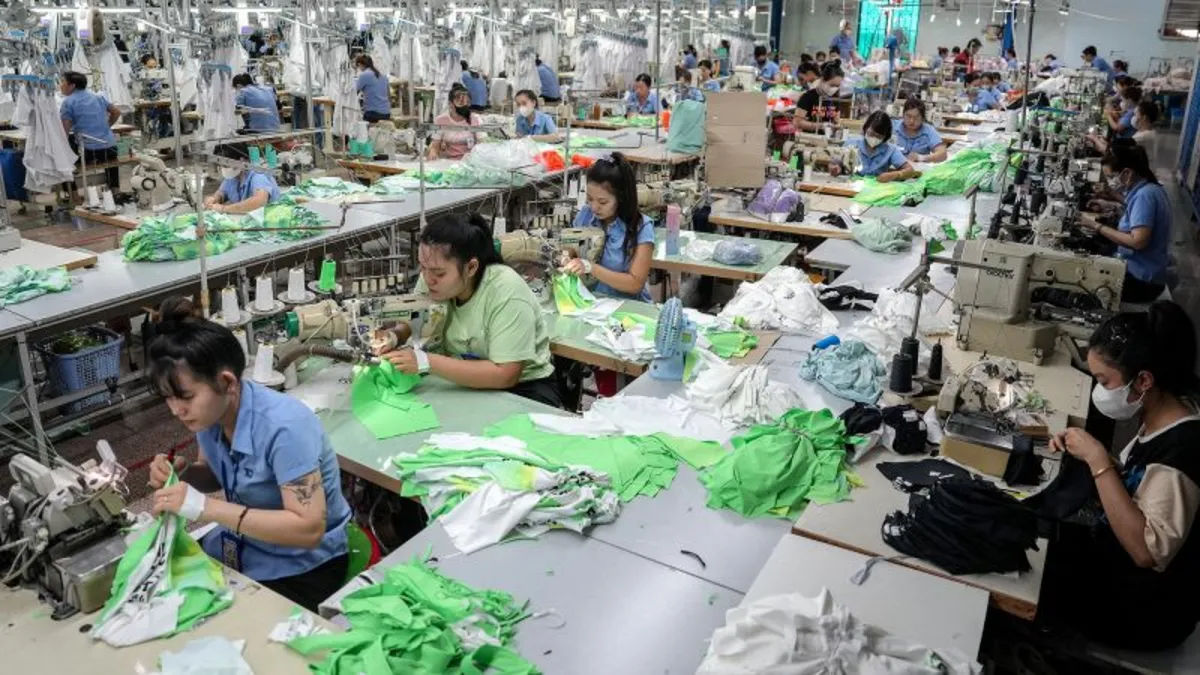
In a significant development ahead of a self-imposed deadline, President Donald Trump announced on Wednesday that the United States has reached a new trade agreement with Vietnam. This marks the administration's third major deal in recent months, showcasing Trump's commitment to reshaping international trade relations. The announcement comes as global trade dynamics remain unstable.
Trump took to Truth Social to share the news, stating, “I just made a Trade Deal with Vietnam.” He elaborated in a follow-up post that the United States will impose a 20% tariff on Vietnamese exports entering the country and a steep 40% tariff on products classified as “transshipping.” According to US Commerce Secretary Howard Lutnick, the transshipping tariff applies to goods sold by other countries that are exported through Vietnam to the US. This effectively means that foreign products funneled through Vietnamese exports will face a hefty 40% tariff.
The 20% tariff marks a significant increase, being double the current minimum tariff rate imposed by the US on goods from Vietnam and many other countries. In return for these tariffs, Trump claims that Vietnam will grant the United States TOTAL ACCESS to its markets for trade, suggesting that American companies will be able to sell their products in Vietnam with zero tariffs. This unprecedented access is expected to significantly boost US exports to Vietnam.
At this stage, it remains unclear whether the agreement is fully finalized or if Vietnam has officially consented to the terms outlined by Trump. According to Việt Nam News, a state-run news outlet, General Secretary Tô Lâm of Vietnam discussed the deal with Trump via phone on Wednesday, referring to it as a framework for future negotiations. The Vietnamese embassy in the US has yet to respond to inquiries from CNN regarding the agreement.
During their call, Lâm proposed that the US formally recognize Vietnam as a market economy and lift certain export restrictions on high-tech products. This could pave the way for a more comprehensive trade relationship between the two nations.
For months, Trump and his administration have touted an influx of countries eager to establish trade deals with the United States. However, with the July 9 deadline approaching — marking the end of a 90-day pause on reciprocal tariffs — the anticipated wave of agreements has yet to materialize. The potential reinstatement of historic tariffs poses risks to financial markets and business planning.
If the proposed tariffs were to take effect as outlined in Trump's earlier announcements, the tariff rates on Vietnamese goods could escalate to a minimum of 46%. This would position Vietnam among the highest tariff rates imposed by the Trump administration. As of now, details of the deal remain sparse, with the White House yet to release comprehensive information regarding the agreement.
Imports from Vietnam surged in recent years, particularly as tariffs on Chinese goods increased. In 2022, Vietnam became the sixth-largest source of goods imported into the US, accounting for $137 billion in trade. This figure has more than doubled compared to five years ago, according to data from the US Commerce Department. However, the trade deficit with Vietnam has also widened, reaching $123 billion last year, making it the third-largest trade deficit the US holds with any country.
President Trump has consistently expressed concern about nations with large trade deficits with the US, viewing them as indicators of unfair trade practices. This perspective explains the administration's push for high reciprocal tariff rates against Vietnam. Benefitting from the tariffs on Chinese goods, many companies have shifted production to Vietnam, where lower tariff rates are more favorable.
The announcement of the trade deal immediately influenced share prices of companies reliant on Vietnamese manufacturing. Stocks such as Nike (NKE), Lululemon (LULU), and Columbia Sportswear (COLM) saw significant gains following Trump's declaration. By mid-afternoon, Nike and Columbia Sportswear shares were up 4.2% and 1.3%, respectively, while Lululemon fluctuated but ultimately rose by 0.7%. Other companies, including VF Corporation (VFC), which owns popular brands like The North Face and Vans, also experienced a boost.
Overall, the S&P 500 index increased by 0.38% during the trading session, reaching an intraday record, while the tech-heavy Nasdaq Composite rose by 0.82%. Despite a slight decline in the blue-chip Dow, which was down 0.1%, the market response indicates optimism surrounding the new trade agreement with Vietnam.